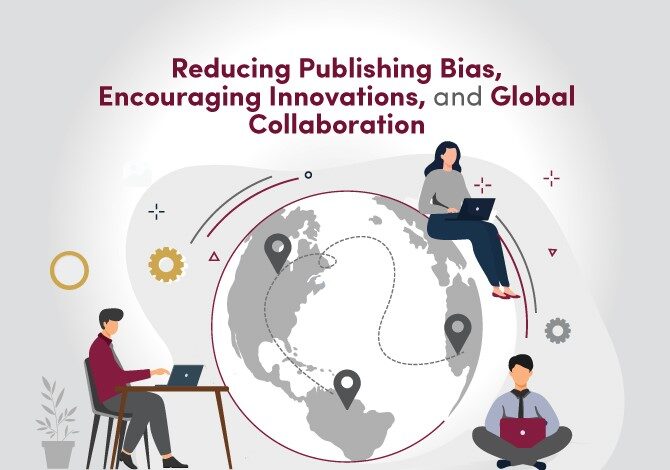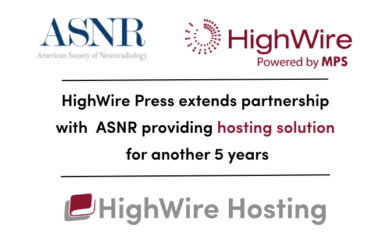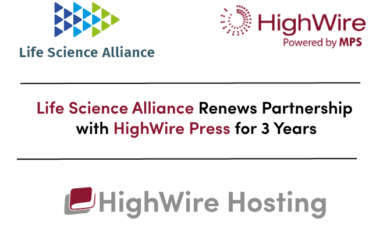Promoting bibliodiversity is seen as a way to increase access to knowledge, reduce barriers to information, and foster a more collaborative and open scholarly community. Tony Alves, SVP of Product Management at HighWire, attended the NISO Plus conference in Baltimore, where he moderated a session on “Open Scholarship and Bibliodiversity” featuring six presenters from different parts of the world, all working on various open scholarship initiatives that support the principles of bibliodiversity.
Following is the second of a two-part blog post summarizing that session. This covers the third through fifth principles, Reducing Publishing Bias, Encouraging Innovations, and Global Collaboration.
“Bibliodiversity” as it pertains to open scholarship refers to the diversity of publishing models, platforms, and formats available for scholarly communication. It emphasizes the importance of a varied and inclusive ecosystem for acquiring academic knowledge and disseminating research. An important part of bibliodiversity is the inclusion and promotion of diverse of scholarly voices. In February I moderated a session at the NISO Plus conference, called “Open Scholarship and Bibliodiversity”, that included researchers and scholarly communication professionals from diverse backgrounds, representing varied open scholarship initiatives. Each of the panelists were asked to consider these key principles as they prepared their talks.
- Access to Diverse Perspectives
- Inclusivity and Equity
- Reducing Publishing Bias
- Encouraging Innovations
- Global Collaboration
Reducing Publishing Bias
Traditional publishing models may have biases that favor certain topics, methodologies, or regions. Bibliodiversity, especially within open access initiatives, can help counteract these biases by creating space for underrepresented voices. This is crucial for fostering a more comprehensive understanding of various subjects and addressing gaps in knowledge.
Katherine Witzig, a Library Administrative Assistant at Oklahoma City University presented, “Respectful Partnership for More Inclusive Practices”. As a member of the Choctaw Nation of Oklahoma and the 2SLGBTQ+ and disability communities, Witzig brings a unique perspective to her work. With a diverse educational background, including BA degrees in English and Spanish, and currently pursuing an MLIS degree at the University of Illinois Urbana-Champaign, Witzig’s professional journey is characterized by a dedication to fostering respectful partnerships and counteracting bias in research.
As Chair of the Committee for Tribal Libraries, Archives, and Museums within the Oklahoma Library Association, Witzig discussed initiatives aimed at supporting tribal librarians and improving access to resources for Indigenous populations. One such initiative is the establishment of web-accessible resource lists tailored to the unique needs of tribal libraries, archives, and museums, ensuring these institutions have access to the tools and support required to serve their communities. Fostering collaboration and knowledge sharing among tribal librarians empowers them to address the specific challenges they face, and advocate for the preservation and promotion of Indigenous knowledge and cultural heritage.
As Co-chair of the Program for Cooperative Cataloging’s Task Group for Metadata Related to Indigenous Peoples of North America, Witzig advocates for reparative and inclusive metadata practices throughout the library and information science community. Recommendations are in development to update Library of Congress classifications and subject headings so that they accurately reflect Indigenous perspectives and identities. Relatedly, Witzig served as an advisory board member for the “Creating Subject Headings for Indigenous Topics: a culturally respectful guide,” which informs library professionals on best practices for incorporating Indigenous perspectives into cataloging. These metadata standards and practices reduce bias by challenging colonial legacies that are embedded in cataloging systems, and they promote greater visibility and recognition of Indigenous peoples and cultures in library collections.
In her research and presentations, Witzig continues to advocate for respectful and culturally sensitive approaches to information management. Presentations at events like the Eastern Oklahoma Library System and UIUC Student Showcases underscore her commitment to fostering cultural connections and incorporating Indigeneity into library and information science practices, creating more inclusive and representative environment that honors the diverse perspectives and experiences of Indigenous communities and other marginalized groups.
Encouraging Innovations
A diverse scholarly publishing landscape encourages innovation in communication and dissemination of research. New and alternative publishing models can emerge, providing researchers with creative ways to share their findings. This innovation contributes to a dynamic scholarly environment that adapts to the evolving needs of the research community.
Dr. Nokuthula Mchunu, Deputy Director at the African Open Science Platform, presented “Towards a continental Open Science Vision: Making African Research Discoverable”. Her talk focused on making African research more discoverable. The African Open Science Platform encompasses various components aimed at advancing open science across the continent, including open science resources, outreach and engagement activities, education and capacity development initiatives, and data-intensive science outcomes.
One of the key challenges addressed by the platform is the limited visibility of African scholarly output, which is attributed to language barriers, underrepresentation in international research networks, and restricted access to research funding. To tackle these challenges, the platform emphasizes the importance of convening and coordinating the interests, ideas, people, institutions, and resources for Open Science both within and for Africa.
To enhance the discoverability of African research, the platform is actively encouraging the adoption of Persistent Identifiers (PIDs) and fostering the best possible discoverability and indexing in open scholarly databases. This effort is exemplified by platforms like africarxiv.org, which serves as a preprint repository specifically for African research, promoting visibility and accessibility of scholarly outputs from the continent.
The African Open Science Platform-Nodes serve as crucial hubs for fostering collaboration and advancing open science initiatives across the continent. These nodes are strategically located in various regions of Africa, encompassing countries such as South Africa, Nigeria, Kenya, Ghana, and others. Each node operates under the umbrella of the African Open Science Platform, working to encourage the adoption of Persistent Identifiers (PIDs) and promote the discoverability of African research in open scholarly databases. Additionally, these nodes play a vital role in facilitating engagement with local communities, universities, research institutions, and policymakers to address challenges related to language barriers, limited digital visibility, and access to research funding. Through their concerted efforts, the African Open Science Platform-Nodes contribute to building a more robust and inclusive research ecosystem across the African continent.
Moreover, the African Open Science Platform is investing in essential infrastructure such as cloud computing and data management tools to support data-intensive research projects. Additionally, initiatives like the Data Science & AI Institute demonstrate the platform’s commitment to providing cutting-edge support for researchers across Africa.
Expanding on these efforts, the platform is engaged in global challenge projects and aims to address the unique needs and opportunities present in African research landscapes. By tackling challenges related to visibility, language, and access to resources, the African Open Science Platform strives to foster a more inclusive and impactful research environment on the continent, ultimately contributing to the advancement of science and innovation worldwide.
Global Collaboration
Bibliodiversity, combined with open access principles, facilitates global collaboration. Researchers from different parts of the world can access each other’s work more easily, leading to increased collaboration and the exchange of ideas. This international collaboration enriches the scholarly discourse and helps build a more interconnected global research community.
Mohamad Mostafa, Regional Engagement Specialist, Middle East and Asia at DataCite, presented “Advancing Equity and Accessibility through DataCite’s Global Access Program”. DataCite, is a global community committed to making research outputs openly available and connected so that their reuse can advance knowledge across and between disciplines, from samples and images to data and preprints. DataCite enables the creation and management of Persistent Identifiers (PIDs), they integrate services to improve research workflows, and they facilitate the discovery and reuse of research outputs and resources.
DataCite launched the Global Access Program (GAP) in February 2023. The program seeks to improve equity and access to Persistent Identifiers (PIDs) infrastructure in underrepresented regions such as Africa, Asia, the Middle East, and Latin America through a comprehensive approach encompassing outreach, technical infrastructure development, and funding opportunities.
Mostafa discussed how GAP has made significant strides in increasing awareness through various outreach activities such as regional webinars delivered in multiple languages, and how the launch of the DataCite Ambassador Program has established collaborations with local communities and provided case studies demonstrating the practical applications of DataCite. Ambassadors from diverse regions such as Ecuador, Indonesia, India, Brazil, Ethiopia, and Saudi Arabia play a crucial role in promoting DataCite’s mission within their communities.
Additionally, GAP has focused on analyzing and enhancing technical infrastructure in target regions, including Africa, Asia, the Middle East, and Latin America. Mostafa noted that by examining the repository landscape and identifying opportunities for improvement, the program aims to support the development of robust infrastructure that facilitates the discoverability and accessibility of research outputs. Furthermore, DataCite’s Global Access Fund (GAF) provides funding opportunities for organizations in the regions to support outreach activities, infrastructure development, and demonstrator projects. Mostafa was happy to announce that the first round of the GAF had been successful, with more than 185 applications received and 12 awardees announced in the first cohort.
GAP is increasing global PID adoption, which Mostafa attributes to the program’s commitment to fostering an equitable and inclusive research ecosystem where researchers and communities worldwide have the necessary tools and resources to share their work effectively. As the GAP continues to make strides towards its goals, its call for support remains open, inviting organizations and individuals to contribute to the advancement of global research accessibility and equity.
Promoting bibliodiversity is seen as a way to increase access to knowledge, reduce barriers to information, and foster a more collaborative and open scholarly community. The NISO Plus session on Open Scholarship and Bibliodiversity, provided an outlet for recognition and promotion of these six important initiatives. Although I’ve categorized each under a single heading, all of the panelists internalized and then reflected all five key principles in their presentations, illustrating that a diverse publishing landscape facilitates the inclusion of a wide range of perspectives and voices. Together, these voices contribute to a robust, equitable, and collaborative scholarly ecosystem.



